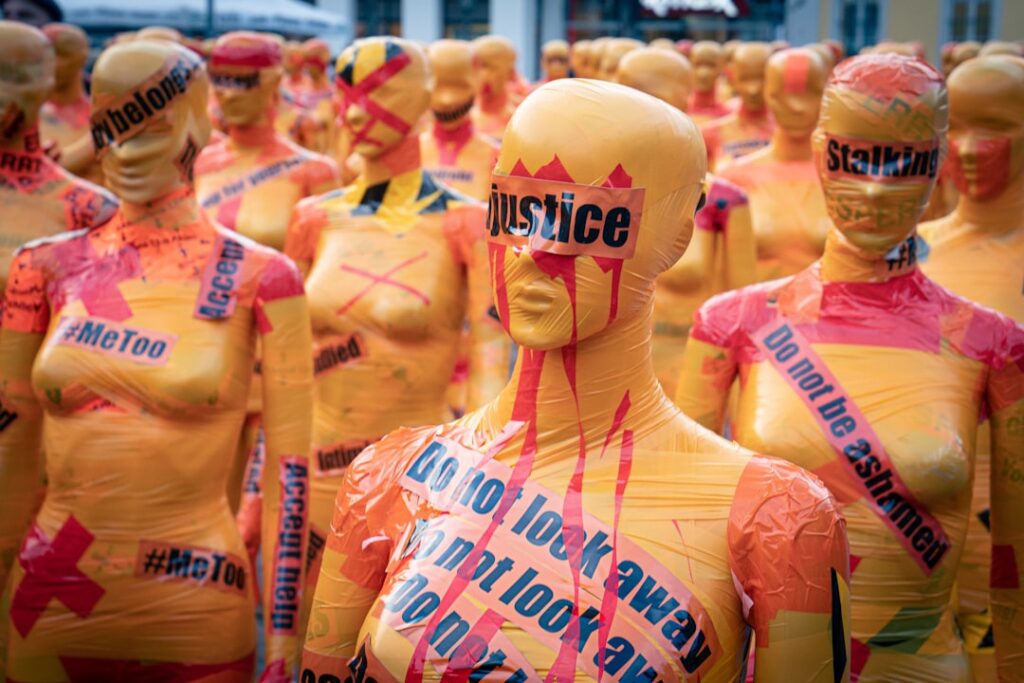
On March 9, 2015, Anthony Hill, a 27-year-old African American man and Air Force veteran, was shot and killed by a police officer in DeKalb County, Georgia. The tragic incident occurred after Hill, who was unarmed and naked at the time, was seen behaving erratically outside his apartment complex. Officer Robert Olsen responded to the scene and encountered Hill, who was experiencing a mental health crisis. Despite Hill’s lack of aggression towards the officer, Olsen fired two shots at him, claiming that he feared for his life. The shooting of Anthony Hill sparked outrage and raised questions about the use of force by law enforcement officers, particularly in cases involving individuals with mental health issues.
The death of Anthony Hill was a devastating loss for his family, friends, and the community at large. Hill was known for his vibrant personality and his dedication to serving his country during his time in the Air Force. His untimely death shed light on the intersection of mental health and policing, as well as the systemic issues that contribute to the disproportionate use of force against people of color. The circumstances surrounding Hill’s death prompted a national conversation about police accountability and the need for reform within law enforcement agencies. The case also became a focal point for the Black Lives Matter movement, as advocates and activists rallied for justice and systemic change in response to Hill’s tragic and unnecessary death.
Key Takeaways
- Anthony Hill, an unarmed black man, was tragically shot and killed by a police officer in 2015.
- Mental health plays a significant role in police encounters, and there is a need for better training and resources for officers to handle these situations.
- The push for police accountability has intensified in the wake of cases like Anthony Hill’s, leading to calls for increased transparency and oversight.
- The Black Lives Matter movement has brought attention to cases like Anthony Hill’s, highlighting the systemic issues of racial bias and police violence.
- The legal battle for justice continues as advocates seek accountability for Anthony Hill’s death and push for reforms in the criminal justice system.
- Anthony Hill’s case has had a significant impact on police reform efforts, sparking discussions and policy changes aimed at addressing racial disparities and use of force by law enforcement.
- The fight for justice for Anthony Hill and others like him continues, as communities and advocates work towards meaningful change and accountability in policing.
The Role of Mental Health in Police Encounters
The encounter between Anthony Hill and Officer Robert Olsen highlighted the complex and often fraught relationship between law enforcement and individuals experiencing mental health crises. According to reports, Hill had been struggling with mental health issues and was diagnosed with bipolar disorder. His behavior on the day of the shooting was indicative of a manic episode, during which he exhibited erratic and disoriented behavior. Despite being unarmed and posing no immediate threat to others, Hill’s mental state likely contributed to the misunderstanding and escalation of the situation by the responding officer.
The case of Anthony Hill underscored the need for law enforcement agencies to receive proper training in crisis intervention and de-escalation techniques when interacting with individuals experiencing mental health crises. Too often, encounters between police officers and individuals with mental illness result in unnecessary violence and tragedy. The lack of understanding and resources for addressing mental health issues within law enforcement agencies has led to numerous instances of excessive force and fatal shootings. In response to Hill’s death, advocates and mental health professionals have called for increased awareness and training for police officers to effectively handle encounters with individuals in crisis, emphasizing the importance of empathy, communication, and non-lethal intervention strategies.
The Push for Police Accountability
In the wake of Anthony Hill’s death, there was a growing demand for police accountability and transparency in cases involving the use of deadly force. The circumstances surrounding Hill’s shooting raised serious concerns about the conduct of Officer Robert Olsen and the policies and practices within the DeKalb County Police Department. Many questioned whether the shooting was justified, given Hill’s unarmed and non-threatening state at the time of the encounter. The lack of accountability for officers involved in such incidents has been a recurring issue in communities across the United States, particularly in cases where people of color are disproportionately impacted.
The push for police accountability following Hill’s death led to calls for independent investigations into officer-involved shootings and greater oversight of law enforcement agencies. Community activists and civil rights organizations demanded transparency and accountability from local authorities, urging them to hold Officer Olsen accountable for his actions. The case also reignited discussions about the need for civilian oversight boards and independent review mechanisms to ensure that law enforcement officers are held to a higher standard of conduct and are held accountable for their actions. The pursuit of police accountability in Anthony Hill’s case became a rallying cry for advocates seeking justice and reform within the criminal justice system.
The Black Lives Matter Movement and Anthony Hill
| Metrics | The Black Lives Matter Movement | Anthony Hill |
|---|---|---|
| Supporters | Millions worldwide | Family, friends, and activists |
| Goals | End racial discrimination and police brutality | Justice for Anthony Hill and awareness of mental health issues |
| Impact | Global protests and policy changes | Raised awareness of police response to mental health crises |
| Challenges | Resistance from some government officials and law enforcement | Lack of accountability for the officer involved |
The shooting of Anthony Hill became a focal point for the Black Lives Matter movement, which seeks to address systemic racism and police violence against Black communities. Hill’s death was emblematic of the broader issues surrounding racial bias and excessive use of force by law enforcement officers, particularly in cases involving individuals with mental health issues. The circumstances of Hill’s shooting underscored the disproportionate impact of police violence on people of color, sparking outrage and mobilizing activists to demand justice and systemic change.
The Black Lives Matter movement played a pivotal role in amplifying the calls for accountability and reform in response to Hill’s death. Advocates and supporters organized protests, vigils, and advocacy campaigns to raise awareness about the injustices faced by Black individuals at the hands of law enforcement. The movement also provided a platform for Hill’s family to share their story and seek solidarity from allies in their pursuit of justice. The case of Anthony Hill served as a stark reminder of the urgent need to address racial disparities in policing and to hold law enforcement agencies accountable for their actions. The Black Lives Matter movement continues to be a driving force in advocating for meaningful reforms to address systemic racism and police brutality in the United States.
The Legal Battle for Justice
Following Anthony Hill’s death, his family embarked on a legal battle to seek justice for their loved one and hold Officer Robert Olsen accountable for his actions. The pursuit of justice through the legal system was a challenging and emotionally taxing process for Hill’s family, who were determined to see accountability for the unnecessary loss of their son. The case garnered national attention as it unfolded in court, drawing scrutiny to the handling of officer-involved shootings and the prosecution of law enforcement officers.
The legal battle for justice in Anthony Hill’s case highlighted the complexities and obstacles faced by families seeking accountability for police violence. The trial proceedings brought to light the discrepancies in Officer Olsen’s account of the shooting and raised questions about his use of deadly force against an unarmed individual in distress. The prosecution argued that Olsen had not followed proper protocol in assessing the situation and had used excessive force against Hill, while Olsen maintained that he had acted in self-defense. The trial became a symbol of the broader struggle for accountability in cases of police violence, as it underscored the challenges of holding law enforcement officers accountable under the law.
The Impact of Anthony Hill’s Case on Police Reform

The impact of Anthony Hill’s case reverberated throughout the criminal justice system, prompting discussions about the need for comprehensive police reform. The circumstances surrounding Hill’s death shed light on systemic issues within law enforcement agencies, including inadequate training in crisis intervention, racial bias, and the use of deadly force. The case served as a catalyst for reform efforts aimed at addressing these issues and implementing meaningful changes within police departments.
In response to Hill’s death, there were calls for increased funding for mental health resources and crisis intervention training for law enforcement officers. Advocates emphasized the importance of equipping officers with the tools and knowledge needed to effectively respond to individuals experiencing mental health crises without resorting to violence. Additionally, there were renewed efforts to implement de-escalation tactics and non-lethal intervention strategies as standard practices within police departments. The case also prompted discussions about the need for greater diversity within law enforcement agencies and efforts to address implicit bias in policing.
The Continued Fight for Justice
Despite the legal proceedings surrounding Anthony Hill’s case, his family and supporters continue to fight for justice and accountability in his memory. The pursuit of justice extends beyond the courtroom, as advocates work tirelessly to ensure that Hill’s death is not forgotten and that meaningful reforms are implemented to prevent similar tragedies from occurring in the future. The continued fight for justice serves as a testament to the resilience and determination of those impacted by police violence.
In honor of Anthony Hill, his family has become vocal advocates for police reform and mental health awareness, using their platform to advocate for change at both the local and national levels. They have worked alongside community organizations, lawmakers, and activists to push for legislative reforms aimed at addressing systemic issues within law enforcement agencies. Their efforts have contributed to ongoing discussions about police accountability, mental health resources, and racial justice within the criminal justice system.
In conclusion, the tragic death of Anthony Hill has had a profound impact on conversations surrounding mental health, police encounters, racial justice, and police reform in the United States. His case has served as a catalyst for advocacy efforts aimed at addressing systemic issues within law enforcement agencies and seeking justice for victims of police violence. As his family continues their fight for accountability and reform, Anthony Hill’s legacy remains a powerful force driving meaningful change within the criminal justice system.
Check out the latest article on Anthony Hill’s impressive performance in the recent soccer match at USSoccerDaily. The article highlights Hill’s exceptional skills and contributions to the team’s victory, shedding light on his potential as a rising star in the soccer world. With insightful analysis and captivating storytelling, this piece offers a compelling look into Hill’s journey and the impact he’s making on the field. Whether you’re a dedicated fan or simply love a good sports story, this article is a must-read for anyone following Anthony Hill’s promising career.
FAQs
Who is Anthony Hill?
Anthony Hill was a 27-year-old African American man who was shot and killed by a police officer in DeKalb County, Georgia, in 2015.
What happened to Anthony Hill?
Anthony Hill, who was unarmed and naked at the time, was shot and killed by a police officer while experiencing a mental health crisis.
What was the outcome of the case?
The police officer who shot Anthony Hill was indicted on charges of murder and violation of oath of office. The case resulted in a mistrial, and the officer was later found not guilty in a retrial.
What impact did Anthony Hill’s case have on the community?
Anthony Hill’s case sparked outrage and protests, and brought attention to the issues of police use of force and the treatment of individuals with mental illness.
What changes have been made as a result of Anthony Hill’s case?
Anthony Hill’s case led to increased awareness and training for law enforcement officers in dealing with individuals experiencing mental health crises. It also prompted discussions about police accountability and reform.


